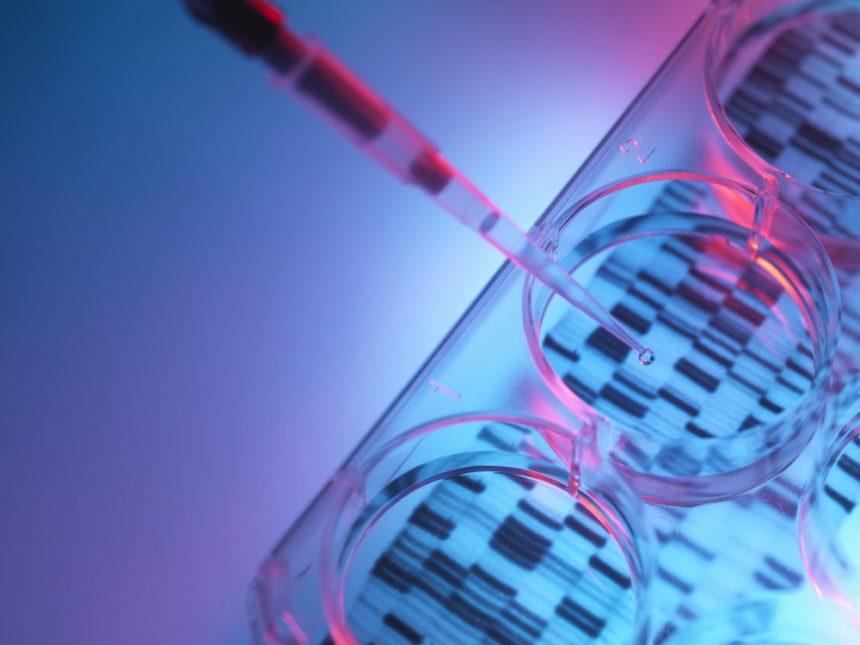As technological advancements in gene editing continue to revolutionize the field of genetics, one tool has stood out for its efficiency and precision: CRISPR. This revolutionary tool has opened new doors for scientists, allowing them to study and manipulate genes in ways that were once thought impossible. However, as with any powerful tool, there are ethical considerations that must be taken into account. The use of CRISPR for genetic testing and diagnosis, in particular, has raised many questions regarding the ethics of gene editing.
In this blog post, we will explore the ethical implications of gene editing, the risks and benefits of using CRISPR for genetic testing and diagnosis, and the potential impact on society as a whole. We will delve into the idea of tampering with nature and treating human life as something to be perfected, the risks of creating a wider wealth gap and exacerbating existing inequalities, and the potential psychological effects on individuals and society as a whole. We will also discuss the importance of proper guidance and regulation from scientific and governing bodies to ensure that the benefits of gene editing are maximized while minimizing any unintended consequences.
Considerations with regards to CRISPR and genetic testing

- Inequality in access to CRISPR technology: As mentioned earlier, CRISPR is a powerful technology that has the potential to treat and cure diseases, but it is also expensive and not readily accessible to everyone. This creates a potential for inequality in access to treatment, where only those who can afford the treatment will be able to benefit from it. This raises important ethical concerns about how to ensure that the benefits of this technology are distributed fairly and equitably.
- Off-target effects: One of the challenges with CRISPR is that it can sometimes affect unintended genes, leading to potentially harmful side effects. This raises important ethical concerns about the safety and efficacy of the technology, and how to ensure that it is used responsibly and with caution.
- Germline editing: Another important ethical consideration with CRISPR is the use of the technology for editing the germline, which refers to the DNA in sperm and egg cells. This has the potential to create permanent changes to the genetic makeup of future generations, which raises important ethical concerns about the long-term effects of such changes.
- Unintended consequences: Finally, there is the possibility that the use of CRISPR could lead to unintended consequences, such as the unintentional creation of new diseases or the alteration of traits that are not related to the targeted gene. This raises important ethical questions about the responsibility of researchers and regulators in ensuring the safety and efficacy of this technology.
- Intellectual property implications: In early 2022, a major patent dispute was fought in the US courts about the foundational patents for the CRISPR genetic editing technology. While the outcome of the court case was ruled in favor of the Broad Institute (Harvard and MIT), the courts decision will have massive implications for the biotechnology industry. Control over patent rights means that there are billions of dollars at stake for any development CRISPR related technology by industry. Unfortunately, the patent dispute is far from over, which puts uncertainty over licensing costs related to the development this technology.

CRISPR, or Clustered Regularly Interspaced Short Palindromic Repeats, is a revolutionary tool in genetic research. In nature, it evolved as a bacterial defense mechanism that allows bacteria to recognize and destroy foreign genes introduced by bacteriophages (ie. bacterial specific viruses). CRISPR technology works by using RNA molecules to guide it to specific regions of genes, which it can then modify. This can be used to disrupt genes causing diseases like cancer, cystic fibrosis, and sickle cell anemia. Although the precision of CRISPR allows for new solutions to genetic disorders, such as a gene-edited cure for some types of blindness, it also warrants ethical discussions regarding the manipulation of genes.
Ethical considerations in gene editing
Gene editing has the potential to be used unethically. In this brave new world where it is possible to remove negative traits and insert more desirable ones, genetic mutations could be the norm. Selective breeding to create “designer babies” could create moral and ethical issues in society. The psychological effects on people that are created through gene manipulation could create deviant and unhealthy attitudes that society would have to learn to adapt to. The ethical implications of gene editing raise the question of what qualifies as ethical manipulation of genes.

Another ethical issue that arises with gene editing is genetic testing and diagnosis. With the potential to find and edit any mutation that predisposes one to a genetic illness, who has the right to choose which genetic traits should be modified? Should parents be required to perform genetic tests on their unborn children? The ethics of genetic testing and diagnosis only rise with the sophistication of the editing technology. Pregnant women in some countries already face controversy over whether to have amniocentesis or chorionic villus sampling tests done.
There are several implications of gene editing that make it an ethical issue. One of these is the idea of tampering with nature itself, treating human life as something to be perfected. The fact that gene editing technology is currently available to only a small subset of the population who has access and can afford it allows for the creation of an even wider wealth gap. This ethical issue becomes compounded if gene editing is used to produce a certain desired outcome, such as race or intelligence. Finally, the concern of gene editing technology spreading beyond the laboratory becomes a security issue.
The technology and potential of gene editing cannot be denied, but with issues such as history, perception, and the law to account for, the potential abuse of this power is something that needs careful consideration. While we believe that gene editing can be a valuable resource in treating and curing diseases, we need to remain vigilant about the ethical ramifications of tampering with something as complex and incomprehensible as human DNA. The scientific community must work together with governing and regulatory bodies to ensure that the benefits presented by gene editing outweigh the unintended consequences. Ultimately, we must question where we draw the line with gene editing and decide how far mankind should be allowed to meddle with human life. In the end, the ethical considerations of genetic testing and diagnosis must be taken into account to ensure that we use gene editing technology ethically, responsibly, and with caution.
